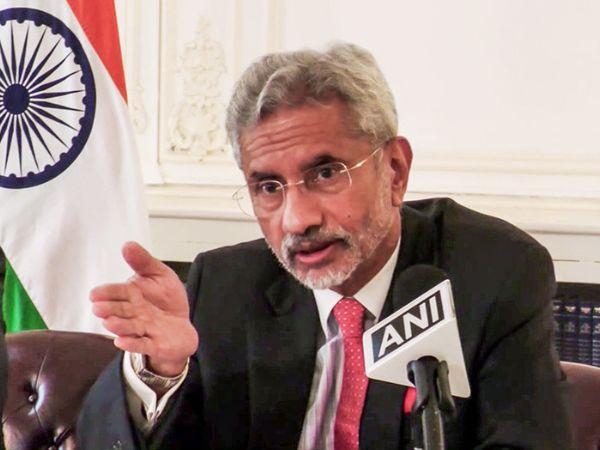- Wednesday, April 23, 2025
Subrahmanyam Jaishankar visited the newly built BAPS Hindu Mandir in Abu Dhabi and participated in the 10th International Yoga Day celebrations before meeting Abdullah bin Zayed Al Nahyan.

By: Shubham Ghosh
INDIAN external affairs minister Subrahmanyam Jaishankar has reviewed with his United Arab Emirates counterpart Abdullah bin Zayed Al Nahyan the multi-faceted comprehensive strategic partnership between the two nations and discussed new areas with “untapped potential” to enhance collaboration, an official statement said on Monday (24).
Jaishankar, who was in the UAE on Sunday (23), also exchanged views with Al Nahyan on regional and global issues.
He visited the iconic BAPS (Bochasanwasi Akshar Purushottam Sanstha) Hindu Mandir in Abu Dhabi and participated in the 10th International Yoga Day celebrations before meeting Al Nahyan.
The two foreign ministers “reviewed the multi-faceted India-UAE Comprehensive Strategic Partnership,” India’s ministry of external affairs (MEA) in New Delhi said on Monday.
Read: India’s Jaishankar in UAE for talks, visits Abu Dhabi temple: ‘A visible symbol of…’
They expressed “happiness at the substantive progress in diverse areas of bilateral cooperation, including commercial and economic collaboration, fintech, education, culture, and people-to-people connect,” it said in a statement.
Very pleased to meet UAE FM @ABZayed today in Abu Dhabi.
Productive and deep conversations on our ever growing Comprehensive Strategic Partnership. Appreciated the discussion and his insights on regional and global issues.
?? ?? pic.twitter.com/g0Iof3n1Zj
— Dr. S. Jaishankar (@DrSJaishankar) June 23, 2024
The ministry said the two ministers “discussed new areas with untapped potential for further enhancing collaboration” and also exchanged views on regional and global issues. Taking to X after meeting his UAE counterpart, Jaishankar said, “Very pleased to meet UAE FM @ABZayed today in Abu Dhabi.”
“Productive and deep conversations on our ever-growing Comprehensive Strategic Partnership. Appreciated the discussion and his insights on regional and global issues,” he added.
After reaching the Gulf nation, Jaishankar visited the BAPS Hindu Mandir in Abu Dhabi, inaugurated by prime minister Narendra Modi on February 14.
Joined international yoga enthusiasts @LouvreAbuDhabi as we celebrate the #InternationalDayofYoga 2024 in the UAE. #IDY2024#YogaForSelfAndSociety https://t.co/soEECSEDbX pic.twitter.com/AM3KpH3WA6
— Dr. S. Jaishankar (@DrSJaishankar) June 23, 2024
Taking to X, he called the temple, which received one million visitors in less than four months, a “visible symbol of India-UAE friendship”.
At the temple, the minister interacted with the monks of BAPS, the organisation that built the temple on the land donated by the UAE government.
Jaishankar then inaugurated and participated in the 10th International Day of Yoga celebrations organised by the Indian Embassy in UAE, held at the Louvre, Abu Dhabi museum premises.
The session lasted for almost 30 minutes, with participants from a multitude of countries at the museum that regularly holds yoga classes for diverse backgrounds.
The ministry said in a statement that Jaishankar’s visit to the UAE, within two weeks of his re-appointment, “signifies the importance India attaches to its relations with the country”.
It added that the visit marks the “continuation of high-level contact between the two countries”.
“Last year, we have also witnessed important milestones in our bilateral relations like the implementation of a local currency trade settlement agreement, the launch of UAE’s domestic credit/debit card based on India’s RuPay card stack, the setting up of a campus of IIT Delhi in Abu Dhabi, fintech collaboration, and commencement of work on IMEEC (India-Middle East-Europe Economic Corridor), among others,” it said.
Ahead of his day-long visit to Abu Dhabi, the MEA said that the visit would provide an opportunity to review the entire spectrum of comprehensive strategic partnership between India and the UAE as well as regional and global developments.
“During the visit, the external affairs minister will have a meeting with his UAE counterpart on wide-ranging issues of the partnership,” the MEA said in a statement. About a 3.5-million-strong and vibrant Indian community forms the largest expatriate group in the UAE.
Both countries signed a landmark comprehensive economic partnership agreement in February 2022 to boost economic engagement.
(With PTI inputs)